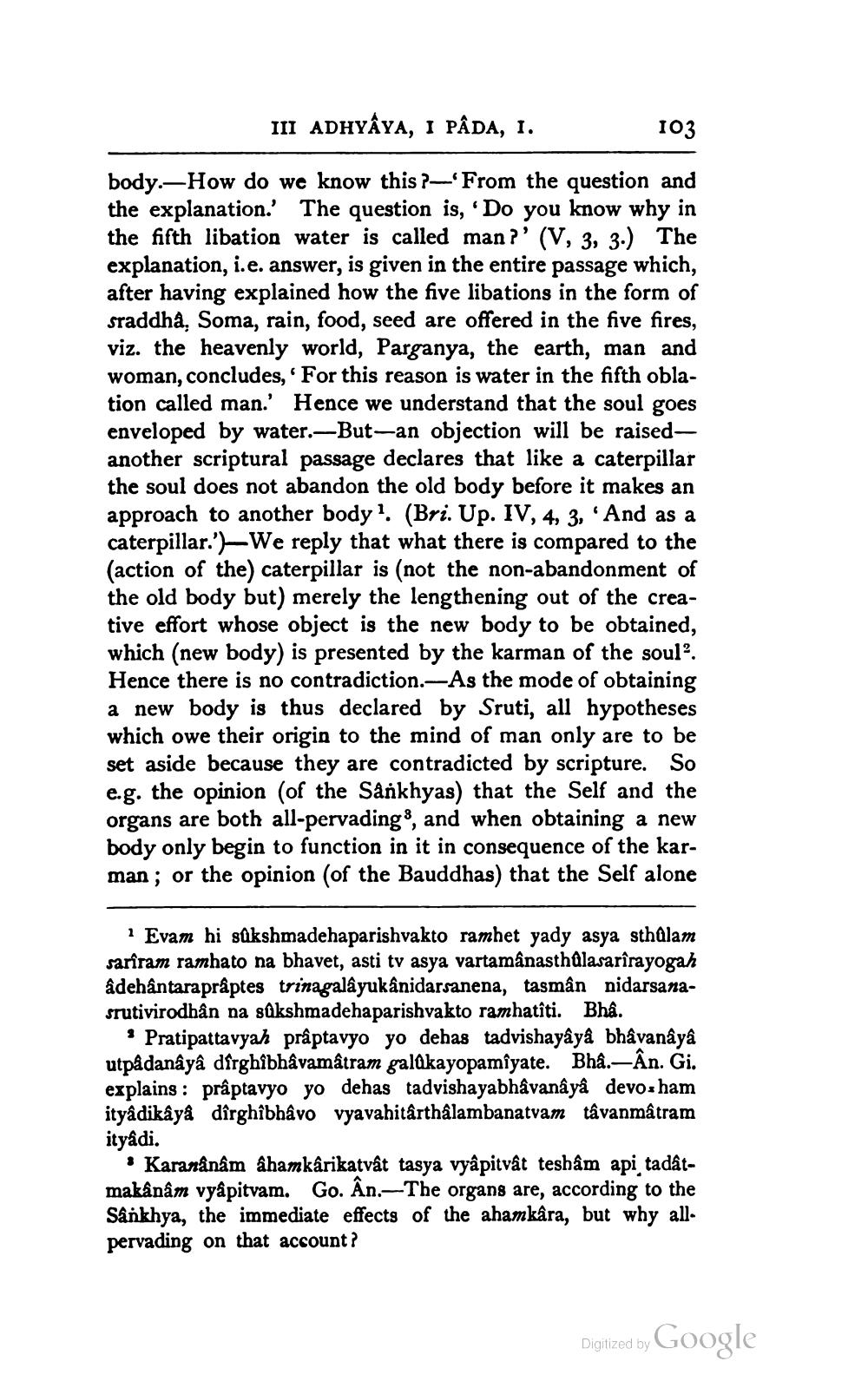________________
III ADHYÂYA, I PÂDA, 1.
103
body.—How do we know this - From the question and the explanation.' The question is, 'Do you know why in the fifth libation water is called man?' (V, 3, 3.) The explanation, i.e. answer, is given in the entire passage which, after having explained how the five libations in the form of sraddha, Soma, rain, food, seed are offered in the five fires, viz. the heavenly world, Parganya, the earth, man and woman, concludes, ' For this reason is water in the fifth oblation called man.' Hence we understand that the soul goes enveloped by water.—But-an objection will be raised - another scriptural passage declares that like a caterpillar the soul does not abandon the old body before it makes an approach to another body 1. (Bri. Up. IV, 4, 3, 'And as a caterpillar.')We reply that what there is compared to the (action of the) caterpillar is (not the non-abandonment of the old body but) merely the lengthening out of the creative effort whose object is the new body to be obtained, which (new body) is presented by the karman of the soul?. Hence there is no contradiction. As the mode of obtaining a new body is thus declared by Sruti, all hypotheses which owe their origin to the mind of man only are to be set aside because they are contradicted by scripture. So e.g. the opinion (of the Sankhyas) that the Self and the organs are both all-pervading 8, and when obtaining a new body only begin to function in it in consequence of the karman; or the opinion (of the Bauddhas) that the Self alone
1 Evam hi sukshmadehaparishvakto ramhet yady asya sthalam sariram ramhato na bhavet, asti tv asya vartamânasthûlasarîrayogah adehântaraprâptes trinagalâ yukânidarsanena, tasman nidarsanasrutivirodhân na sūkshmadehaparishvakto ramhatîti. Bhâ.
• Pratipattavyah prâptavyo yo dehas tadvishayâya bhavanâyâ utpådanâyâ dîrghibhavamâtram galûkayopamîyate. Bha.—Ân. Gi. explains : prâptavyo yo dehas tadvishayabhavanâyâ devos ham ityådikåyå dîrghibhâvo vyavahitârthålambanatvam tâvanmatram ityadi.
• Karanânâm âhamkârikatvật tasya vyâpitvật teshâm api tadatmakânâm vyâpitvam. Go. Ân.-The organs are, according to the Sankhya, the immediate effects of the ahamkâra, but why all. pervading on that account?
Digitized by
Digitized by Google




